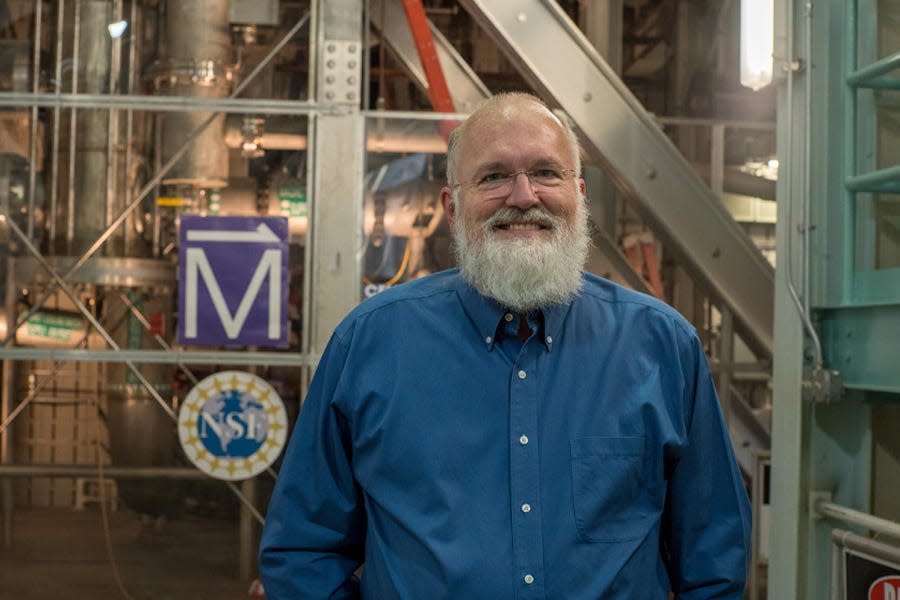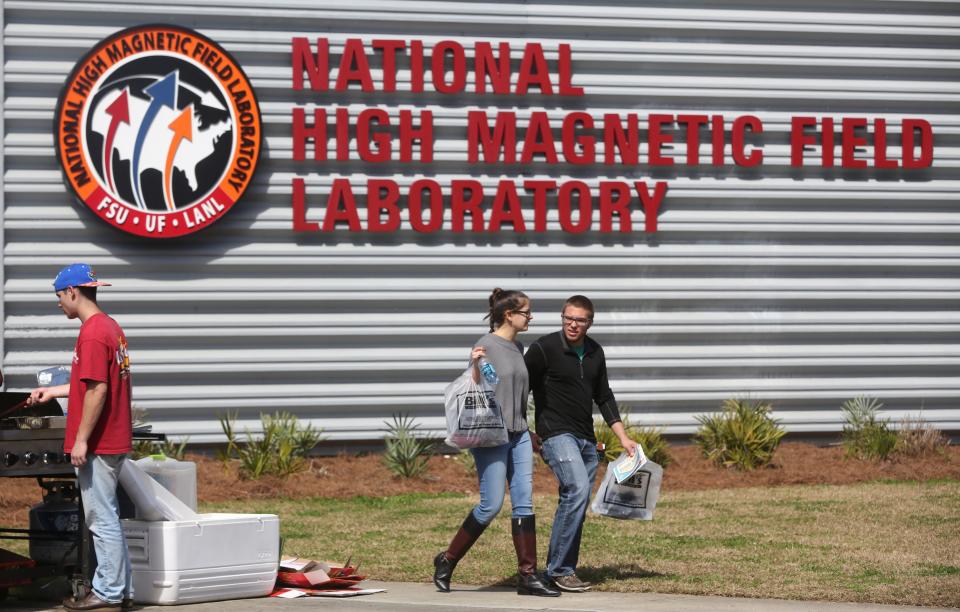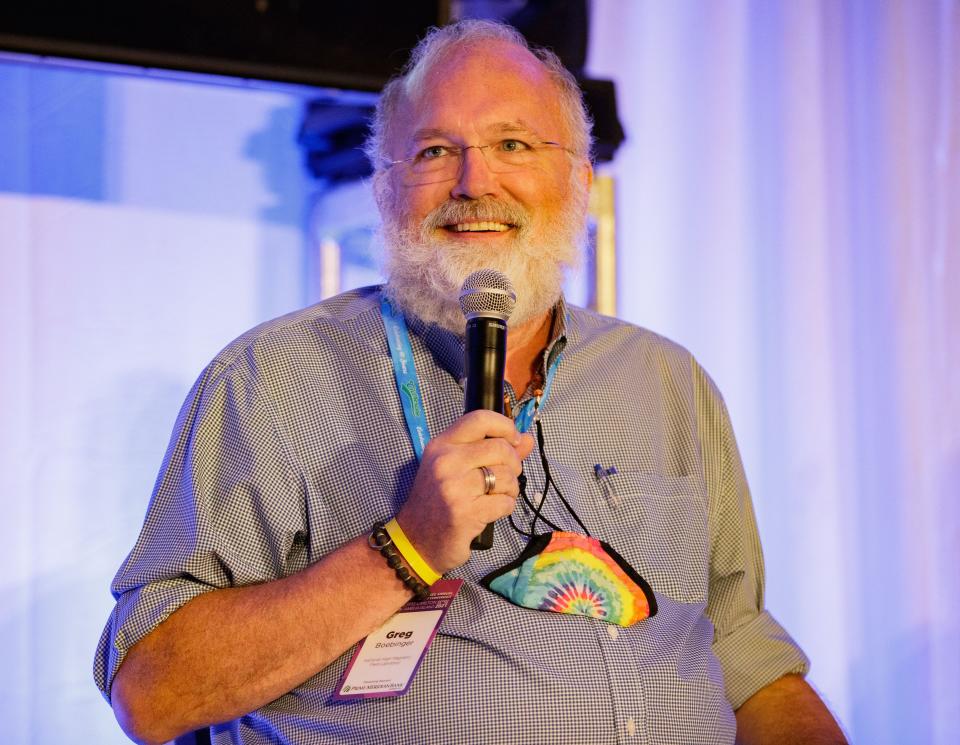A major leadership change in the works for FSU-headquartered National MagLab

After heading the Florida State University-headquartered National High Magnetic Field Laboratory for nearly two decades, Greg Boebinger is stepping down from his position as the MagLab’s director.
“I’ve never done this before, so after 19 years it certainly is a mixed feeling,” Boebinger told the Tallahassee Democrat.
As Boebinger prepares to return to the faculty over the summer, the university is launching a national search to choose his replacement, where FAMU-FSU College of Engineering Dean Suvranu De will serve as chair of the 14-person search committee.
“I feel like I’ve done what I can do, and I feel like it’s the right time for me and the Magnet Lab to make this transition,” said Boebinger, who also holds a tenured faculty position as a professor of physics. “It’s both exciting and certainly a little bit daunting as well because I don’t know what the future will bring, but I guess we never do.”
His departure comes as the university and local economic leaders try to position Tallahassee as the "Magnetic Capital of the World," which could draw industries in a cutting edge industry to a city that has worked for years to diversify its economy beyond state government.
The National MagLab — which receives funding from the National Science Foundation and the state of Florida — hosts researchers from universities like the University of Florida as well as businesses and labs around the world, using unique high field magnets and instruments to further research and make discoveries.
A powerful attraction: MagCorp, Philips partner to bring power of MagLab research to MRI tech
More: National MagLab headquartered at FSU receives $195 million in funding for the next 5 years
Under Boebinger’s additional role of being the principal investigator of the MagLab’s core funding grant, it has grown by 67 percent, according to a university release.
The laboratory has also had over 8,400 publications and contributed to over 1,200 master’s or doctoral theses during Boebinger's tenure as director.
In addition, Boebinger is a member of the National Academy of Sciences for his career in physics and is also a fellow of the American Academy of Arts and Sciences, American Physical Society and the American Association for the Advancement of Science.

He spoke to the Tallahassee Democrat about what it has been like to lead the MagLab and what’s next for him:
Q: What led to your decision to step down from being FSU’s MagLab director?
A: “I’ve either been in charge of or helped extensively with five of our renewal proposals (to request funding for continued operation), and they do take a lot out of you. We will submit our next one in 2026 but will actually start planning it in 2024, so this is the window.
If I’m thinking about what the Magnet Lab needs, the decision was that I either announce that I’m stepping down early this year, or I wait for another five years and go through another renewal proposal. This way, the plan is that I’ll still be around to help advise on the next renewal proposal so that there will be a smoother transition.”
Q: What was your no. 1 goal when you took on this role?
A: “I wanted for the laboratory itself and for the international scientific community to recognize our achievements and our status as the leading high magnetic field laboratory in the world.
That sounds arrogant, but it's anything but that. It’s a realization that we have the talent in place and the potential to get there. Our primary goal is to advance science, and the best way to do that is to be the best we can possibly be. I saw in this laboratory the potential to be the best in the world.”
Q: What has been your greatest accomplishment as the director?
A: “I sometimes joke that it’s getting a coffee shop in the lobby! But that’s only half joking since some of the best ideas come about through serendipitous interactions with colleagues. Because of that, my greatest pride comes from building strong research efforts in many different areas of science, engineering and technology while having an environment in which they talk to each other, so they avoid the stovepiping that so many other organizations have.

We have many examples of material scientists learning about what’s going on with the biologists who are doing magnetic residence imaging, for example, and they’ll start doing imaging of other important technologies like batteries. That to me is the most exciting — when we get groups of people from different scientific disciplines to work on a common goal.”
Q: What has been the biggest challenge for you while directing the MagLab?
A: “Finding the funding. It just gets more and more complicated, it seems.
Every five years, we write a massive proposal to get our core proposal, but to be as good as we are and to perform at the level we perform, we still have to go out and attract roughly one dollar for every dollar that comes out of that core funding. When we’re writing a grant every five years and it’s a three-year effort, that gets to be quite a challenge because then, we have to go out and raise the additional funds.”
Q: What’s next for you as you return to the faculty?
A: “I very much want to get more involved in the work of the National Academy of Sciences and the American Academy of Arts and Sciences. They do spectacular work, whether it be writing reports for the government to refer to so that decisions they make are based on sound scientific principles or working for human rights around the world or helping to bring the arts into more communities. It’s a great honor to get into these academies, but I don’t want them to just be something that’s on my resume; I want them to be things I help contribute to.
After that, who knows? But a big part of my goal that I share with the FSU administration is to travel and give talks at leading institutions around the world to wave the FSU flag, if you will, and to publicize the great research and the great artistic assets that we have here at Florida State University.”
Contact Tarah Jean at tjean@tallahassee.com or follow her on twitter @tarahjean_.
Never miss a story: Subscribe to the Tallahassee Democrat using the link at the top of the page.
This article originally appeared on Tallahassee Democrat: FSU MagLab Director Greg Boebinger steps down from 20-year role

